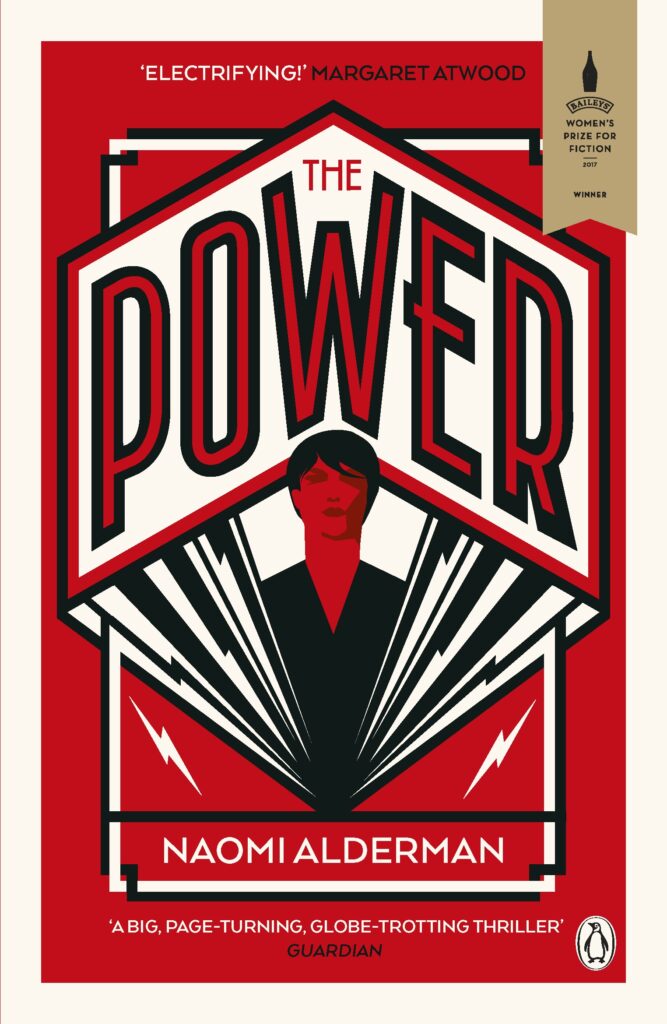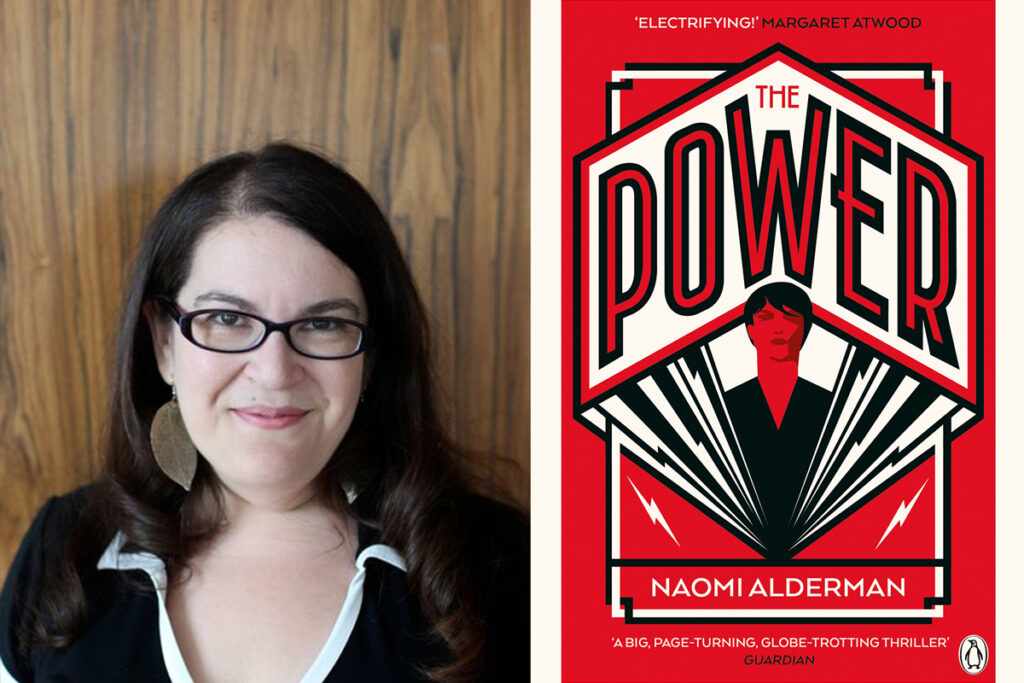From the Women’s Prize Archives.
Brilliant author Naomi Alderman was longlisted for the 2017 Baileys Women’s Prize for Fiction for The Power. Read on to find out how Naomi’s work as a video game writer informs her fiction, why she longs to write a biopic of Mary Wollstonecraft and why Naomi loves libraries, particularly the SOAS library where much of The Power was written.
Who are your literary heroines?
Oh there are so many. Any woman who has made her living in writing is my hero and my friend; what a thing it is to be able to do, and how hard generations of women have fought so that I could be allowed it! So: Mary Wollstonecraft, the first modern woman, I long to write a biopic of her one day. Margaret Cavendish, combining science and fiction (not quite science fiction, perhaps?). Ursula Le Guin, whose strange worlds made me question and reflect on my own. Chitra Bannerjee Divakaruni’s writing about India gave me confidence that I could write about my own community with pride and fearlessness. Carson McCullers and Toni Morrison broke my heart and gave it back to me in a new shape. Looking at my bookshelves from where I sit writing this I see so many women whose writing has inspired me and held me up: Carol Shields, Mary Stewart, PD James, Marjane Satrapi, Alice Monroe, Amy Levy, Alison Bechdel, Han Kang. Too many to name. Everywhere you look there are women writing books that might save you.

Aside from fiction, you’re also lead writer and co-creator of bestselling smartphone game Zombies, Run! with Six to Start. How does your game development work inform your novel writing?
In a way they’re not related, because the games fulfil the part of me that loves to work collaboratively and the novels speak to those things I need to work through alone. So the relationship between them is: they feed different parts of me. But in another way they are related. I think my novels tend to ask the question “what would you do if you were in this situation?” There is some implied position for the reader in the text, a place I’m inviting them to step into. And of course games do that very explicitly. The relationship with the audience has been something I’ve been thinking through in my games then; I’m interested in how you invite the audience into your story, how you suggest to them that they could position themselves in your world.
Do you have a particular place where you like to write?
I do really love libraries – more than cafes, more than my own home, libraries are wonderful to write in. I wrote a chunk of this novel in the SOAS library, which is open every day except Christmas and New Year’s Day. It was very pleasing to be sitting there on Christmas Eve, late in the day, just me and a bunch of young women in hijabs, all of us working hard.
How did the idea come to create a matriarchal society in The Power? Did the end result differ much from your original vision?
I’m not sure it’s exactly ‘matriarchal’ in that we don’t quite get to the point where mothers are passing on power to daughters. And I didn’t start from the idea of making a matriarchal society. But the idea did come from a particular moment in my life. I was going through a really horrible breakup, one of those ones where you wake up every morning, have a cry and then get on with your day. And in the middle of all this emotional turmoil, I got onto the tube and saw a poster advertising a movie with a photograph of a beautiful woman crying, beautifully. And in that moment it felt like the whole of the society I live in saying to me “oh yes, we like it when you cry, we think it’s sexy”. And something just snapped in me and all I could think was: what would it take for me to be able to get onto this tube train and see a sexy photo of a *man* crying? What’s the smallest thing I could change? And this novel is the answer to that question, or at least an attempt to think it through for myself.
I didn’t really know where it would go when I started. I just had this idea about women developing a strange new power – one that I eventually based on electric eels. I just thought through what might happen and that’s how I wrote the book.
Can you tell us what new projects you’re working on now?
I’m working on the TV show of The Power right now, as well as on the new season of Zombies, Run!, a few new episodes of Science Stories for Radio 4, a couple of other TV ideas… and a new novel which is just poking its head over the ridge. There’s not enough of it yet to be able to talk about it for sure, but it’s political again, about power and systems and how we operate within them as human beings.



